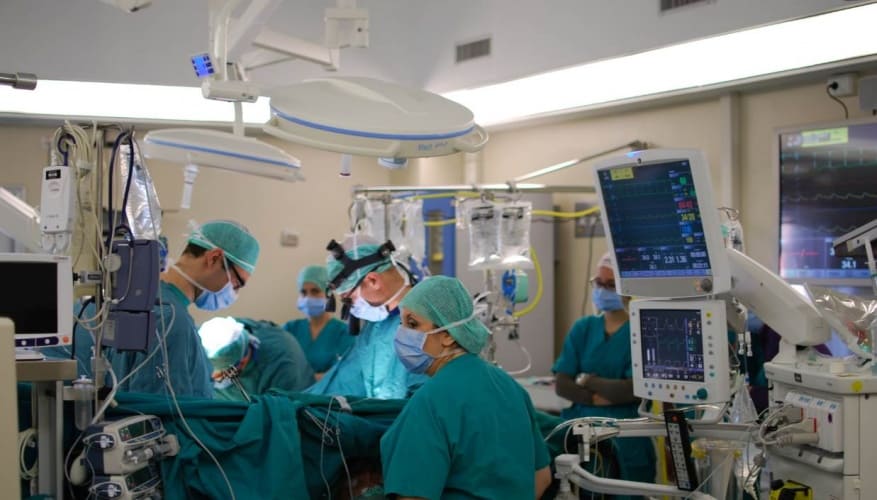
The Robotic Retinal Dissection Device (R2D2) is designed to mitigate against tiny tremors in surgeons’ hands, which can even be caused by their pulse. Built by Dutch medical robotics firm Preceyes BV, it has seven independent computer-controlled motors and acts like a mechanical hand. Using a joystick, a touchscreen and an operating microscope, the surgeon’s movements are converted into robotic manoeuvres as precise as 1000th of a millimetre.
In this instance, Professor of Ophthalmology Robert MacLaren entered the eye of Reverend Dr William Beaver via a hole less than 1mm in diameter. The 70-year-old priest had a membrane growing on his retina that was distorting his vision. At just 100th of a millimetre thick, this membrane had to be dissected off the retina without damaging it. The operation has so far been a success and Father Beaver’s vision is improving.
“There is no doubt in my mind that we have just witnessed a vision of eye surgery in the future,” said Professor MacLaren.
“Current technology with laser scanners and microscopes allows us to monitor retinal diseases at the microscopic level, but the things we see are beyond the physiological limit of what the human hand can operate on. With a robotic system, we open up a whole new chapter of eye operations that currently cannot be performed.”
These operation include surgical treatments for blindness, such as stem cell gene therapy where the cells need to be placed under the retina with a high degree of accuracy. R2D2’s trial will involve 12 patients in total, with the surgery increasing in complexity as the trial progresses. The next phase will test the robot’s capabilities in placing a fine needle under the retina to inject fluid, which in turn could pave the way for gene therapy with the potential to treat certain conditions that cause blindness.
The trial is sponsored by the University of Oxford and funded by the NIHR Oxford Biomedical Research Centre, with support from Oxford University Hospitals NHS Foundation Trust, and additional funding from Dutch blindness charity Zizoz.

Red Bull makes hydrogen fuel cell play with AVL
Surely EVs are the best solution for motor sports and for weight / performance dispense with the battery altogether by introducing paired conductors...